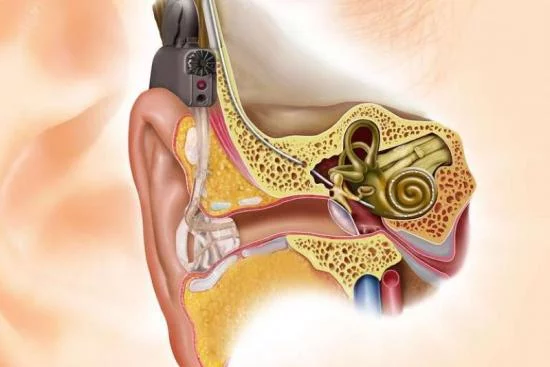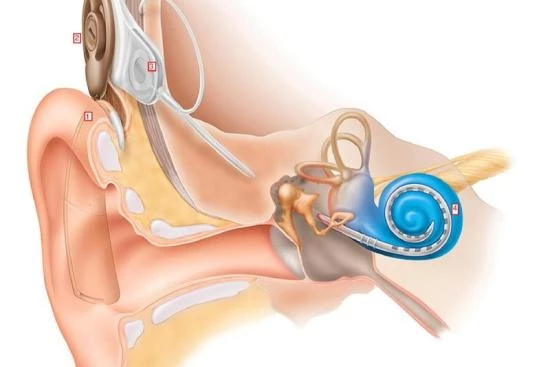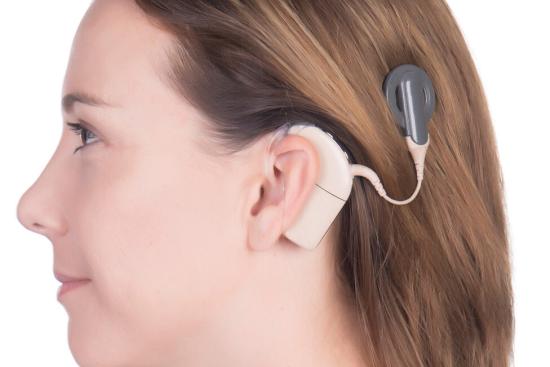Affecting nearly 16% of the world's population, hearing loss is a major public health problem that affects young and old alike. While aging is a common cause of deafness, other factors may also play a role.
The cochlear implant represents a major advance in the treatment of severe to profound hearing loss. This electronic device directly stimulates the auditory nerve and offers implant recipients a new quality of life.
- Children born with severe to profound deafness and at least 12 months old.
- Children and adults who cannot hear sound or who seriously need a hearing aid
- Dizziness and numbness.
- Implant failure.
- Damage to the facial nerve.
- Inflammation.
- The operation lasts 2 to 4 hours
- Total recovery after 4 to 6 weeks
- Return to work 1 to 2 weeks after surgery
- 95%
Cochlear implant cost in Turkey
The average cost of a cochlear implant in Turkey is $16,000.
Turkey Santé negotiates the best prices for your cochlear implant in Turkey with its partners. We guarantee you optimal and safe conditions of care under the supervision of world-renowned specialists and audioprosthetists.
You can get a personalized quote and a free teleconsultation with our speech-language pathologists by clicking on the link below.
Best Clinics with Verified Reviews

- Multispecialized hospital
- 7 operating rooms
- Capacity é of 170 beds

- Multispecialized hospital
- Hospital founded in 2007
- Very good reputation in ENT department
What is a cochlear implant?
A cochlear implant is a revolutionary electronic medical device that restores hearing to people with severe to profound deafness. The device has two main parts:
- The internal part, which is surgically implanted under the skin behind the ear, consists of a receiver and a set of electrodes. These are inserted into the cochlea, a part of the inner ear, to stimulate the auditory nerve directly.
- The external part, worn behind the ear, consists of a microphone, a sound processor and a magnetic antenna. The microphone picks up sounds, the processor converts them into electrical signals, and the antenna transmits these signals to the inner part by magnetic induction.
Key components
The main components of the cochlear implant are:
- Microphone: Gathers surrounding sounds.
- Processor: Analyzes sounds and converts them into electrical signals.
- Transmitter: Transmits signals to the inside.
- Receiver: Picks up signals and sends them to electrodes.
- Electrodes: Stimulate the auditory nerve to send sound information to the brain.
Benefits of cochlear implants
The cochlear implant offers a new perspective on hearing for profoundly deaf people. Unlike conventional hearing aids, which amplify sound, the cochlear implant bypasses damaged parts of the ear to stimulate the auditory nerve directly. This cutting-edge technology enables many users to regain functional hearing and participate more fully in social life.
Although cochlear implants do not restore hearing identical to that of a healthy ear, they do offer significant benefits:
- Improved speech understanding: Even in noisy environments, cochlear implant recipients can distinguish voices and ambient noise, making conversation easier.
- Speech development: In children, early implantation promotes the acquisition of spoken and written language and stimulates cognitive and social development.
- Improved quality of life: By enabling better communication and greater participation in social life, cochlear implants significantly improve the quality of life for users.
- Increased safety: The ability to hear environmental sounds, such as alarms or traffic signs, greatly improves everyday safety.
It's important to note that adapting to a cochlear implant requires a learning process and auditory retraining. However, the benefits in communication and quality of life are undeniable.

Preoperative indications
A thorough medical evaluation is required before cochlear implantation in Turkey. This includes:
- Audiometric tests to assess the ability to perceive sounds.
- Speech tests to measure speech understanding and production.
- Balance tests to determine if the inner ear is involved in maintaining balance.
- Medical imaging (CT scan or MRI) to visualize the structure of the inner ear and ensure implant feasibility.
Turquie Santé is with you every step of the way, from diagnosis to recovery. Our partner specialists will help you determine if cochlear implantation is right for you and develop a personalized speech therapy program tailored to your specific needs.

How do you hear with a cochlear implant?
Perception of sound with an implant is subjective and depends on many individual factors. Some users may regain near-normal hearing, while others may need to use additional strategies (lip-reading, visual aids).
Each person's response to a cochlear implant is unique. Although it stimulates the auditory nerve directly, the quality of sound perceived also depends on how the brain processes these signals. That's why it's impossible to predict exactly how you'll hear.
Regular follow-up visits with your hearing healthcare professional will allow you to adjust your implant settings and make progress in your hearing rehabilitation.
You may need to stop wearing your conventional hearing aid for a while to get used to your new implant.
Share this page






